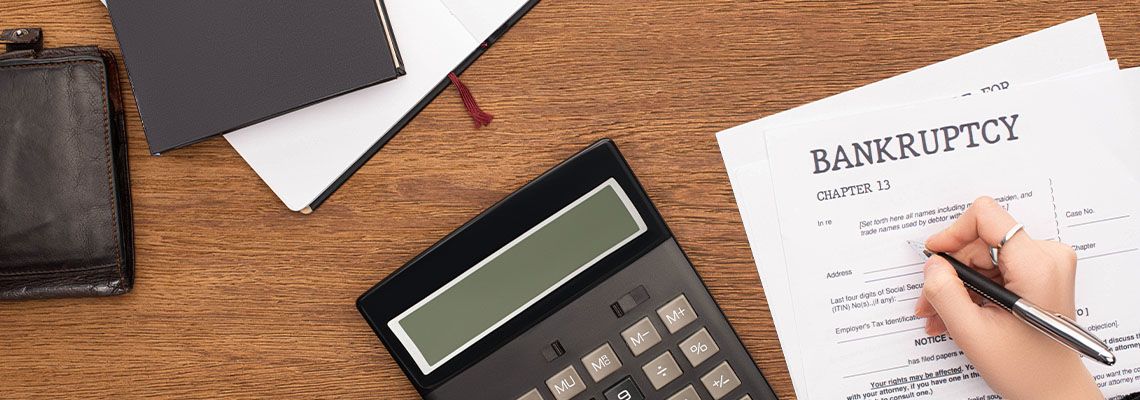
Life After Bankruptcy
Filing for bankruptcy is a powerful remedy for people who feel they hit rock bottom financially. While bankruptcy can help you get a “clean slate” in your financial life, you need to understand what your life after bankruptcy will look like and what challenges you may face in the foreseeable future.
Our attorney at Hoke Law Firm helps clients not only file for bankruptcy and get back on their feet financially but also maintain realistic expectations about their life after bankruptcy. We have an office in Baton Rouge, Louisiana, but also serve the neighboring areas of New Orleans and Lafayette.
Creditor Harassment
One of the first things you may encounter after filing for bankruptcy is creditor harassment. This is despite the fact that a bankruptcy filing results in an automatic stay that essentially prohibits creditors from continuing their debt collection efforts against a debtor. An automatic stay also prohibits any form of creditor harassment, including letters, phone calls, and emails.
When you file for bankruptcy, all of the creditors listed in your bankruptcy case will be sent a notice to inform them that they are no longer permitted to contact you about your debts. While most creditors respect automatic stay, some don’t.
If you continue getting phone calls, emails, or letters from your creditor(s) after filing for bankruptcy and after an automatic stay goes into effect, consider taking the following steps to stop creditor harassment once and for all:
Tell the creditor that you filed for bankruptcy and that their actions violate the automatic stay in your bankruptcy;
Keep records of every creditor’s attempt to contact you after a bankruptcy is filed; and,
If the creditor continues harassing you, contact an attorney. Your attorney will advise you on your best course of action, which may include taking legal action against the creditor.
Sometimes, creditors keep making phone calls and/or sending emails/letters because they did not receive a notice that the debtor filed for bankruptcy. For this reason, telling the creditor that you filed for bankruptcy may actually be enough to stop creditor harassment. If it isn’t, you can advocate for your protection with an attorney’s support.
Credit Report
According to the American Bankruptcy Institute, a Chapter 7 bankruptcy may stay on the filer’s credit report for 10 years after the filing, while a Chapter 13 bankruptcy may remain for seven years after the filing date.
There is no getting around the fact that filing for bankruptcy will most likely hurt your credit score. For this reason, one of the most important things you can do in your life after bankruptcy is start working toward rebuilding your credit score.
With bankruptcy on your credit report, you may have a hard time qualifying for new credit. The good news is that the negative impact of bankruptcy on your credit report will diminish over time. However, as long as you take proper steps to fix your credit, you do not necessarily have to wait seven to 10 years until the bankruptcy disappears from your credit report to qualify for new credit.
Fixing Your Credit
If you want to minimize the negative impact of bankruptcy on your credit report—and your life in general—you need to understand what steps you can take to repair your credit. Fixing your credit may require you to:
Pay your bills on time (no excuses here). One of the most critical things to do when trying to repair your credit after bankruptcy is to always pay your bills and meet your other obligations on time. This will help you keep your credit report clean.
Establish an emergency fund. Life is unpredictable, so there is no guarantee that you will not experience financial distress or hardship in your post-bankruptcy life. For example, you may lose your job or end up in a hospital. For this reason, it would be wise to establish an emergency fund and deposit some amount of money on a monthly basis just in case.
Ease back into credit. While getting a credit card after bankruptcy might seem counterintuitive, it can actually help you rebuild your credit over time. A history of repayments proves your financial reliability, which can positively impact your credit score in the long run. However, you will most likely not be able to obtain a credit card immediately after filing for bankruptcy because there may be what is known as a “cooling-off period.”
Monitor your credit reports. Fixing your credit after bankruptcy requires you to hold yourself accountable. You should regularly monitor your credit reports to make sure that you are on the right track. The habit of checking your credit reports can also help you spot any errors or inconsistencies and address them in a timely manner.
Yes, your credit score will most likely take a hit after your file for bankruptcy. However, following the above-mentioned tips can help you fix your credit and improve your financial situation in your post-bankruptcy life.
Turn to Trusted Legal Advice
While filing for bankruptcy gives you a chance to get your finances in order, your life after bankruptcy may not be as carefree and easy as you imagine. Consider getting legal advice from an attorney at Hoke Law Firm to prepare for your post-bankruptcy life. We can help you stop creditor harassment and take the necessary steps to rebuild your credit. Reach out to our office to schedule a free consultation and discuss your concerns.